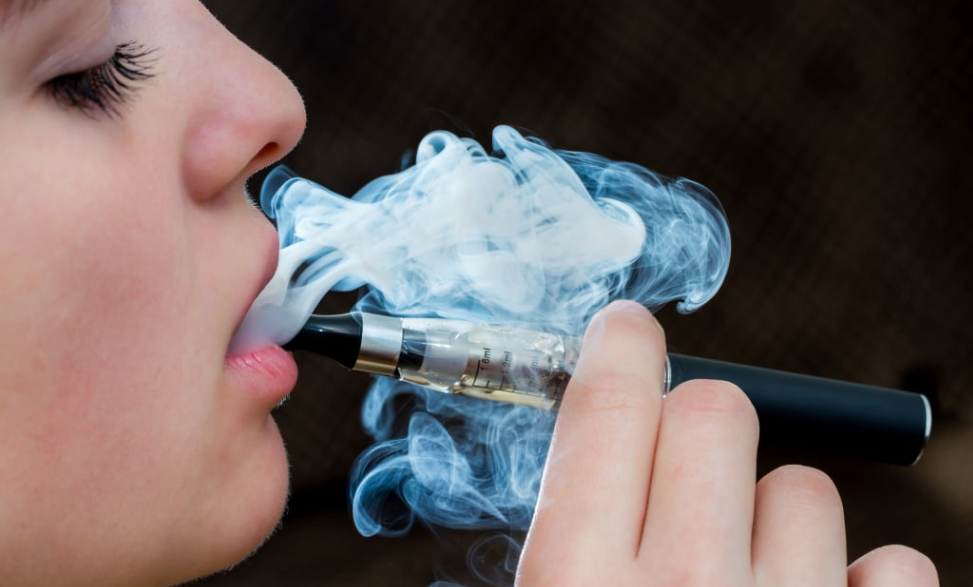In a remarkable move to combat the environmental hazards caused by disposable vapes, New York City Mayor Eric Adams has taken a bold step. The city has recently filed a lawsuit against companies engaged in the illegal sale of these harmful products. This action comes as a response to a newly released report titled "Vape Waste: The Environmental Harms of Disposable Vapes" by the US PIRG Education Fund. The report sheds light on the growing threat that these hazardous electronic wastes pose to our environment.
Disposable Vapes: Symbols of a Throwaway Society
According to Lucas Rockett Gutterman, the report author and director of the US PIRG Education Fund's Designed to Last campaign, disposable vapes have become a symbol of our single-use, throwaway society. The report uncovers a significant issue: there is no standard legal way to recycle these products, leading to their widespread disposal.
If we were to line up all the disposable vapes sold in a year, they would stretch for an astonishing 7,000 miles, enough to span the continental US twice. This statistic highlights the magnitude of the problem at hand.
Non-Biodegradable and Harmful
Disposable vapes present a new and rising threat to our environment. While cigarette butts have long been recognized as a significant source of beach pollution, disposable vapes exacerbate the problem. Unlike cigarette trash, which takes about a decade to degrade, disposable vapes are non-biodegradable, and the single-use plastic they contain never fully breaks down.
Moreover, the manufacturing process of these products results in the wastage of valuable materials. For example, the rechargeable batteries in the disposable vapes sold in a year consist of approximately 23.6 tons of lithium. This amount of lithium could instead be used to create batteries for over 2,600 electric vehicles, highlighting the unnecessary waste generated by the disposable vape industry.
Urgent Need for Action
The findings of the report should serve as a wake-up call, urging the US Food and Drug Administration (FDA) to intensify its efforts to combat the unauthorized sales of disposable vapes. In June 2023, the FDA issued warning letters to 189 retailers for selling these products. The US PIRG Education Fund advocates are calling on all retailers, including major convenience stores like 7-Eleven, Shell, BP, and Chevron, to comply with the warning letters and immediately stop selling disposable vapes.
The report also urges the FDA to deny all current and future requests to sell these harmful products, further emphasizing the need for decisive action.
Protecting the Environment and Public Health
The impact of disposable vapes extends beyond environmental concerns. Linda B. Rosenthal, member of the New York Assembly and Chair of the Assembly Committee on Housing, highlights that e-cigarette companies have spent billions of dollars hooking a new generation of kids on nicotine while disregarding the environment.
Rosenthal draws attention to the fact that these colorful and inexpensive devices, made of plastic and powered by lithium-ion batteries, are designed for short-term use and then discarded. They are not only attracting young people but also wreaking havoc on our environment, with millions ending up in landfills and washing up on beaches worldwide.
Rosenthal emphasizes the necessity of passing laws that combat the harms caused by the e-cigarette industry. Such laws would protect public health and the environment from the threats posed by disposable vapes.
Taking Comprehensive Measures: NYC's Legal Action
As New York City takes legal action against companies involved in the illegal sale of disposable vapes, it becomes evident that urgent and comprehensive measures are needed to address the environmental and public health risks posed by these products. Collaboration between government agencies, advocacy groups, and retailers plays a crucial role in finding sustainable solutions and preventing further harm to our planet.
FAQs (Frequently Asked Questions)
Q: What are disposable vapes?
Disposable vapes are single-use electronic cigarettes that are intended to be used and discarded after one-time use. They often come pre-filled with e-liquid and are designed for convenience.
Q: Why are disposable vapes harmful to the environment?
Disposable vapes are harmful to the environment because they contain non-biodegradable materials, such as plastic and lithium-ion batteries. These materials do not break down easily and contribute to pollution and waste accumulation.
Q: How do disposable vapes impact public health?
Disposable vapes can negatively impact public health by attracting young people to nicotine use. The colorful and inexpensive nature of these devices makes them appealing to youth, potentially leading to nicotine addiction and associated health risks.
Q: What actions are being taken to combat the sale of disposable vapes?
New York City has filed a lawsuit against companies engaged in the illegal sale of disposable vapes. Additionally, advocacy groups are urging the US Food and Drug Administration (FDA) to intensify its efforts in combating the unauthorized sales of these products.
Q: What can individuals do to address the issue of disposable vapes?
Individuals can play a role in addressing the issue of disposable vapes by making informed choices and opting for reusable vaping devices instead. Properly disposing of e-cigarette waste and supporting legislation that regulates the industry can also make a positive impact.


